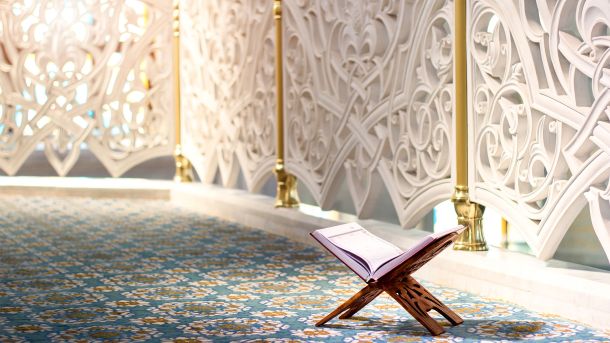News Archive
Jun 23, 2007
O Seekers of Knowledge!
Knowledge is one of the delights and pleasures of the world. So when it is acted upon, it becomes for the Hereafter.
Indeed all praise is for Allāh, We praise Him, seek His aid and seek His forgiveness. We seek refuge in from the evils of our own souls and from our evil actions. He whom Allāh guides, then none can misguide him; and he whom Allāh misguides, then none can guide him. I bear witness that none has the right to be worshipped except Allāh alone, having no partner; and I bear witness that Muḥammad (ﷺ) is His servant and Messenger.
“O you who believe! Have taqwá (fear) of Allāh as y…
Jun 23, 2007
The Permissible and Impermissible Types of Differing
Yes, whosoever opposes the clear Book and the beneficial Sunnah, or that which the pious predecessors of this Ummah had ijmāʿ (consensus) upon, opposing it without a justifiable excuse, then such a person has acted with the action of the innovators.
The Definition
Shaykh Ibn lbrāhīm – raḥimahullāh– (d.1389H) – said: “Ahl al-Sunnah wal-Jamāʿah have uṣūl (fundamentals) which are firmly based upon proofs, and upon this are built the furū’ (subsidiary issues).”1
Guidelines Regarding Differences
Imām al-Saʿdī (d.1376H) – raḥimahullāh– said:
“Differences of opinions that occur between the (Schola…
Jun 23, 2007
Taqwá: The Key to Learning
Whosoever loves that Allāh should open-up his heart for him and grant light to him, then let him abandon speech about that which does not concern him, and abandon sins and turn away from disobedience.
Abū Anas Ḥamad ibn Ibrāhīm al-ʿUthmānAllāh – the Most Perfect, Most High – said:
“O you who believe! Have taqwá (fear) of Allāh, and believe in His Messenger, and He will bestow upon you a double portion of His Mercy, and He will provide you with a light by which you will walk.’’ [2]
Allāh – the Most High – also said:
“O you who believe! If you have taqwá of Allāh, He will give you a Furqān…
Jun 23, 2007
The Principle of Permissibility
Shaykh al-Islām Ibn Taymiyyah رحمه الله stated:1 “Peoples’ sayings and actions are of two kinds: ʿibādāt (acts of worship) by which their Religion is established, and ʿādāt (customary practices) which are required for day-to-day living. From the principles of the Sharīʿah (Divinely Prescribed Islamic Law), we know that acts of worship are those acts which have been prescribed by Allāh or approved by Him; nothing is to be affirmed here, except through the Sharīʿah. However, as far as worldly activities of people are concerned they are necessary for everyday life. Here the principle is freedom…
Jun 23, 2007
Wrestling Is from the Sunnah
Our Salaf recognized wrestling as a means of strengthening the body, involving skillful grappling movements, in an attempt to put one’s opponent on the floor.
Imām Ibn al-Qayyim
1. His Wrestling ﷺ
And as for his (ﷺ) wrestling, in the Sunan of Abū Dāwūd, upon the authority of Muḥammad Ibn ʿAlī Ibn Rukānah, who said, “Verily Rukānah wrestled the Prophet (ﷺ), and the Prophet (ﷺ) took him down.” 2 And this ḥadīth has a story surrounding it that we will now mention. Our Shaykh, Abū al-Ḥajjaaj, al-Ḥāfiẓ in his book Tahdheebul-Kāmilmentions:
‘‘Rukānah Ibn ’Abd-Y…
Jun 23, 2007
Food and Eating Habits According to the Sunnah
It is sufficient for the son of Ādam to eat a few mouthfuls, to keep him going. If he must do that (fill his stomach), then let him fill one third with food, one third with drink and one third with air.
Imām Ibn al-Qayyim al-Jawziyyah
Food
[1]: When he put his hand in the food, he would say, “Bismillāh (with the Name of Allāh),’’ and he told people to say this when eating. He said, “When any one of you eats, let him mention the name of Allāh. If he forgets to mention the name of Allāh at the beginning, let him say ‘Bismillāhi fī awwalihi wa ākhirihi,’ (with the name of Allāh, at its beginnin…








